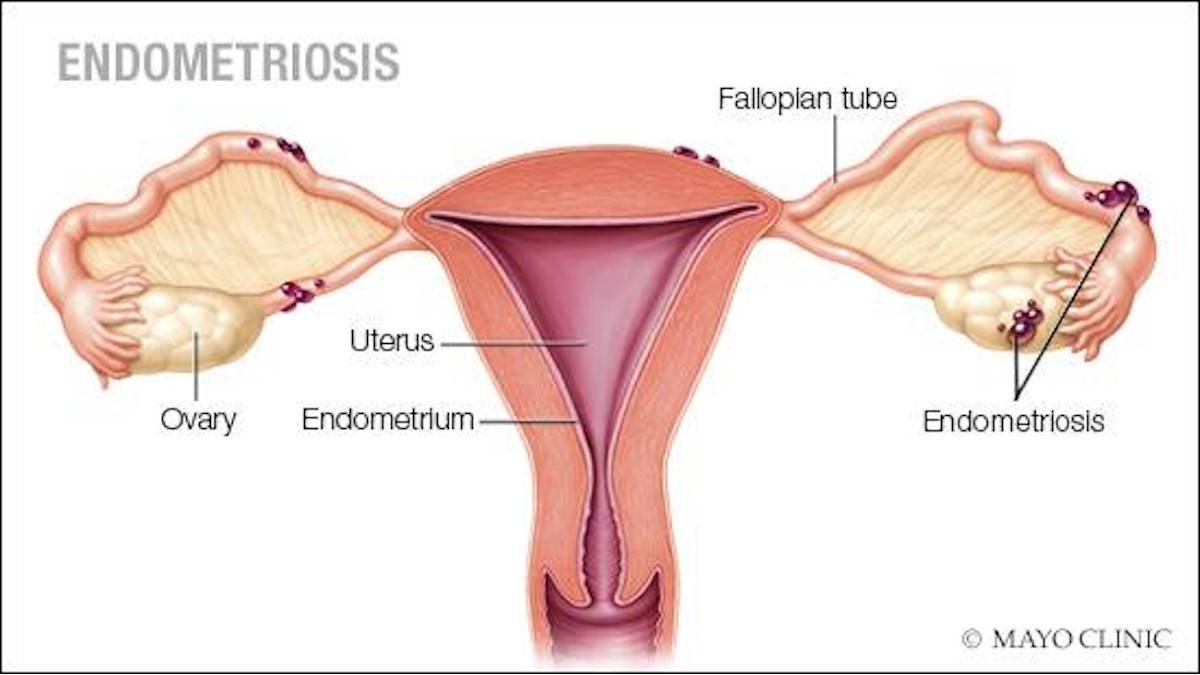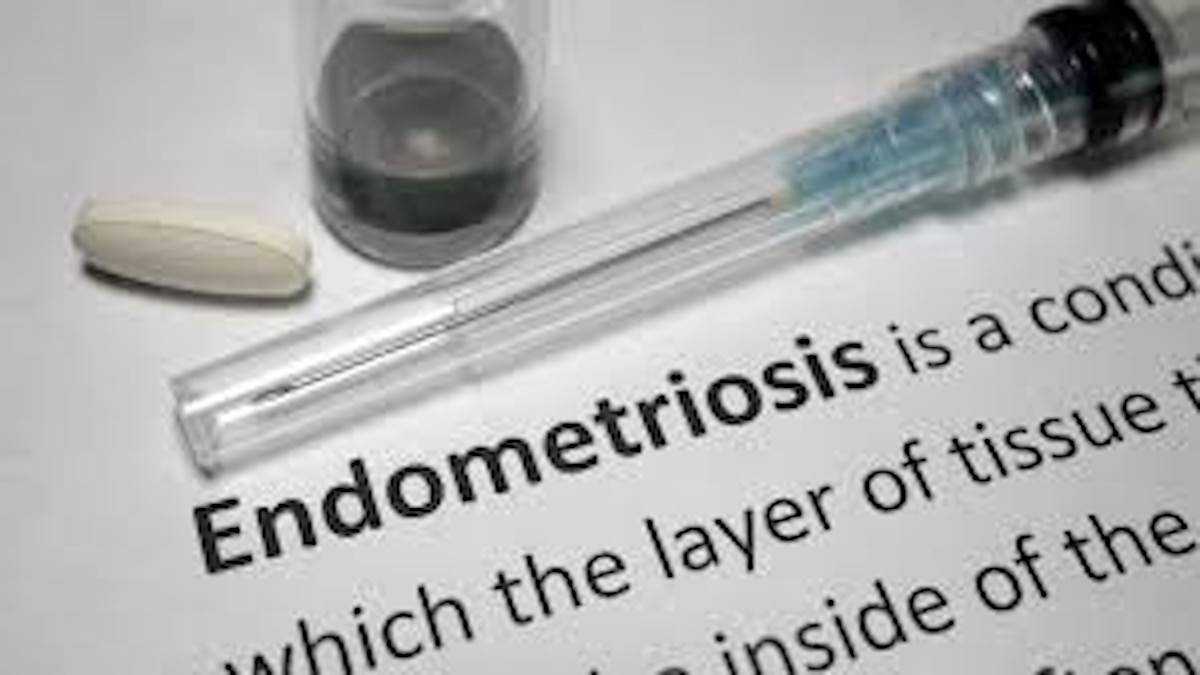The endometrium is a dynamic layer that responds to ovarian hormones and grows and sheds and reforms every month.
Endometrium grows and prepares the uterus for fertilized egg implantation during conception. If fertilization does not happen, the tissue sheds out and causes bleeding called periods.
Endometriosis is an abnormal tissue growth in which tissue similar to the endometrium grows outside the uterine cavity wall. It covers ovaries, fallopian tubes, and the tissue lining a woman’s pelvis. During periods, due to hormonal action, this tissue also sheds just like endometrium. However, the blood or the tissue does not find a way to come out of the body and stays inside.

Symptoms
In most instances, endometriosis is associated with the following symptoms:
- Severe pain during periods
- Stomach cramps
- Pain during intercourse
- Pain while urination or bowel movement
- Infertility
- Intermenstrual bleeding
It is important to note that the severity of pain is not related to the severity of endometriosis.
Impact of endometriosis on fertility
- Infertility has a strong correlation with endometriosis. When the egg moves out of the ovary, the abnormal tissue lining that inflames the fallopian tube can damage the egg and/or sperm. This may prevent the egg from reaching its destination.
- This also affects the smooth fusion between the egg and sperm, thereby affecting fertilization.
- Sometimes, in advance cases, endometriosis causes adhesion of the pelvic organ and blocks the fallopian tube.
Treatment and Pregnancy Management with Endometriosis
- Laparoscopic surgery helps to disintegrate the abnormal tissue growth on the pelvic organs. During the procedure, your doctor might use lasers, scissors, or cauterization to remove the lesion.
- Endometriosis is hormone-dependent and it’s not known why some women have it and some don’t. There are a lot of theories as to why it grows, most accepted is the lack of immune response of the body to kill the abnormal cells and allowing them to grow and invade. During pregnancy, endometriosis may reduce as the growth depends on hormones. Estrogen allows it to grow and progesterone reduces it. During pregnancy the main hormone in the body is progesterone hence endometriosis reduces at that time till the time a woman is breastfeeding. Post-pregnancy, once normal periods start, the growth of endometriosis will need to be controlled by medication
- Birth control pills or minor laparoscopic surgery may be prescribed later to remove the tissues if any present.
- In the severe case of endometriosis, where fertilization is in trouble, laparoscopic surgery is needed. Conception can happen after the first few months of the procedure.Â
- If you are diagnosed with endometriosis and want to conceive, doctors may suggest conception at the earliest as the presence of endometriosis on ovaries causes a reduction in the number of eggs in ovaries and the growth of endometriosis is controlled by medications that don’t allow pregnancy to occur. Hence the recommendation is to treat symptoms and try to conceive earlier. With time endometriosis reduces chances of conception even with Assisted Reproductive Techniques such as IVF.
Conclusion
You should consult a doctor if your symptoms are indicative of endometriosis, and more so if you are planning a pregnancy and discuss with your physician well in advance on the best course of treatment that will work for you.
Special thanks to Dr. Anshumala Shukla (Gynecological Laparoscopy Surgeon) for the expert advice.






